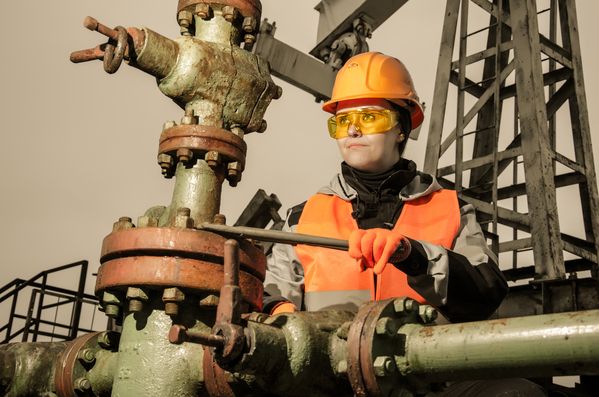As companies start to announce quarterly earnings, investors can see just how much the economic downturn has affected business. San Antonio, Texas-based refiner Valero (VLO 0.61%) shows it is taking the downturn in stride with its first-quarter earnings announcement. Investors may have even more good news to look forward to in Q2, though.

IMAGE SOURCE: GETTY IMAGES
By the numbers
Valero's first-quarter revenue fell 8.9% year over year. Thanks to a non-cash charge of $2.5 billion that the company took for inventory valuations -- when the price of oil plunged, so did the on-paper value of the company's inventory on its books -- it ended the quarter with a net loss of $1.8 billion.
Investors may be more concerned about what Valero is doing with its cash. The company's cash from operations was negative $49 million for the quarter. That owed largely to an unusual reduction in accounts payable of $4.2 billion, as commodity prices fell and the company bought fewer of those commodities.
Before the economy went into lockdown, Valero bought back 2.1 million shares in the quarter. The company has since suspended its stock buyback campaign to preserve cash, but so far it's keeping its dividend at $0.98 per quarter on its common stock.
Finally, Valero issued only $300 million of debt in the period. The company did mention its recent $1.5 billion debt raise, which took place on April 16 -- after the end of the first quarter. This debt raise gives investors a good idea of what kind of cash the company needed to pay its bills.
Many companies are much worse off, drawing down billions of dollars from credit lines, or even worse, getting bailouts from the federal government. Valero's moves show the public it has the resources to manage cash emergencies should they arise. Even though the company had to reduce its cash and take out debt, it still had $6.3 billion of liquidity available in the form of its revolving credit line and cash on hand.
The company's reaction to the unprecedented drop in oil prices was to defer $400 million in capex to next year. This and the suspension of stock buybacks are seemingly the only responses Valero's management needed to make in adjusting to this new economy.

IMAGE SOURCE: GETTY IMAGES
Looking forward
Management at Valero seems confident that the company has seen the worst of plummeting oil prices and the shutdown of the economy. Even though oil did not stop falling until late April, the charges Valero took in the first quarter are likely much bigger than the charges investors will see in subsequent quarters.
The relatively minor effects the investing public has seen on Valero's operations, combined with the company's remaining liquidity position, show that it can get through a downturn with barely a scratch. It's not too late to look closer at Valero stock and consider taking advantage of its resiliency.






